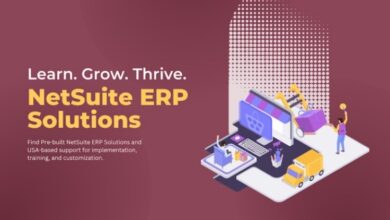From Idea to Execution: A Practical Guide for First-Time Founders

An idea is the spark but execution fuels the journey from concept to commercial success. For first-time founders, the difference between a promising idea and a sustainable business is disciplined action, smart planning and the right support. Whether you need a strategic business consultant, a business advisor or practical financial consulting, following a clear, step-by-step process dramatically increases your odds of success.
Key Takeaways
- Execution beats an untested idea every time.
- Validate quickly, plan clearly and fund wisely.
- Use MVPs and customer data to drive product decisions.
- Engage the right help—a business consultant, business advisor or financial consulting expert—to shorten your path to scale.
- For small ventures, a business consultant for small businesses or small business consultant can provide targeted, practical support.
Why Execution Is Everything
Ideas are plentiful; what investors, partners and customers look for is evidence you can deliver. Execution shows you can plan, adapt and produce results qualities that attract funding, customers and advice from a seasoned business management consultant. Founders who prioritise execution build momentum, create measurable traction and make their businesses investable.
Execution: A Step-by-Step Guide for First-Time Founders
Follow these core steps to move from concept to a growing company.
Step 1. Validate the Market
Test demand before you spend heavily. Run quick surveys, pre-sell a pilot offer, or interview target customers. Market validation reduces risk and gives you product features to prioritise.
Step 2. Build a Clear Business Plan
Draft a concise plan that covers your value proposition, target audience, revenue model and basic financial forecasts. This roadmap is essential when you speak to a small business consultant, potential partners or lenders.
Step 3. Secure Appropriate Funding
Match funding to stage and risk. Bootstrapping works for early MVPs; equity or angel investment may suit faster growth. If you need professional advice, seek financial consulting to assess cashflow scenarios and funding options. For micro ventures, a business consultant for small businesses can help identify grants, local support and lender-friendly projections.
Step 4. Build an MVP and Learn Fast
Create a minimum viable product to gather real user feedback. Keep features focused on your core value; iterate based on usage patterns, not assumptions.
Step 5. Acquire Customers Efficiently
Test low-cost acquisition channels first (content, referrals, niche ads). Measure cost per acquisition (CPA) and lifetime value (LTV). Early traction is the strongest proof point when engaging a business advisor or pitching for business investment.
Step 6. Measure, Iterate, Improve
Set three core metrics and review them weekly. Use customer feedback to refine positioning, pricing and UX. Rapid, measured iterations outpace slow perfectionism.
Step 7. Put Structure Around Growth
When you scale, put basic processes, KPIs and governance in place. A business management consultant can help build scalable operations and define roles so growth is sustainable.
Step 8. Seek Ongoing Support
Founders benefit from mentoring and external accountability. A consultant for small business or small business consultant can offer practical fixes and introduce you to funding networks or corporate partners.
Maximising Your Early Growth Potential
Early-stage founders often overlook small operational wins that compound over time. Simple steps like setting up effective CRM systems, creating automated customer onboarding, or implementing basic financial tracking can drastically improve efficiency. Partnering with a seasoned business consultant or leveraging business management consultant expertise ensures these early decisions scale with growth. Mentorship in areas like compliance, tax planning, and strategic partnerships can prevent costly missteps. Additionally, maintaining a network of advisors and connecting with other founders provides critical insights, helping you avoid common pitfalls. Smart execution in these areas builds a strong foundation for sustainable success.
Working with Experts
Bringing in the right advisor accelerates learning and reduces avoidable mistakes. If you want to partner with an established mentor for strategy and execution, consider exploring resources from Matt Haycox or learning more about his hands-on startup consulting services. Expert guidance from financial planning to operational setup helps convert early traction into repeatable growth.
Conclusion
For first-time founders, the journey from idea to execution can feel daunting but it doesn’t have to be. Success lies in breaking the process into manageable steps: validating demand, securing the right funding, building an MVP, and learning from customers. Along the way, the guidance of a business consultant or business management consultant can provide clarity, accountability, and confidence. By combining disciplined execution with expert support, today’s entrepreneurs can transform ideas into thriving, scalable businesses that attract investment and stand the test of time.


